High-Level Policy Session 7: Ethical Dimensions of Information and Knowledge Societies / Bridging Digital Divides
WSIS
Session 145
Ethical Dimensions of Information and Knowledge Societies
"The Information Society should respect peace and uphold the fundamental values of freedom, equality, solidarity, tolerance, shared responsibility, and respect for nature.
We acknowledge the importance of ethics for the Information Society, which should foster justice, and the dignity and worth of the human person. The widest possible protection should be accorded to the family and to enable it to play its crucial role in society.
The use of ICTs and content creation should respect human rights and fundamental freedoms of others,
including personal privacy, and the right to freedom of thought, conscience, and religion in conformity with relevant international instruments.
All actors in the Information Society should take appropriate actions and preventive measures, as determined by law, against abusive uses of ICTs, such as illegal and other acts motivated by racism, racial discrimination, xenophobia, and related intolerance, hatred, violence, all forms of child abuse, including paedophilia and child pornography, and trafficking in, and exploitation of, human beings."
Geneva Declaration of Principles, WSIS 2003, https://www.itu.int/net/wsis/docs/geneva/official/dop.html
Bridging Digital Divides
According to the latest ITU data, roughly one-third of the global population (2.7 billion people) remain unconnected to the Internet. The figure was an improvement from 2021 but revealed a levelling off from the strong connectivity gains made during the onset and height of the COVID-19 pandemic.
The Internet has become more affordable in all regions of the world and among all income groups. Cost, however, remains a major obstacle to Internet access, especially in low-income economies. The current global economic situation – with high inflation, rising interest rates, and deep uncertainty – could add to the challenge of extending Internet reach in lower-income areas.
Furthermore, the gender gap is still present, with 259 million fewer women having access to the internet than men. Although the world has moved closer to gender parity in the last three years, gender parity scores are low in underdeveloped and vulnerable economies.
We are fully aware that the benefits of the information technology revolution are today unevenly distributed between developed and developing countries and within societies. We are fully committed to turning this digital divide into a digital opportunity for all, particularly for those who risk being left behind and being further marginalized.
[1]https://www.itu.int/en/mediacentre/Pages/PR-2022-11-30-Facts-Figures-2022.aspx
[2]https://www.itu.int/net/wsis/docs/geneva/official/dop.html
First Phase of the WSIS (10-12 December 2003, Geneva) Geneva Declaration of Principles
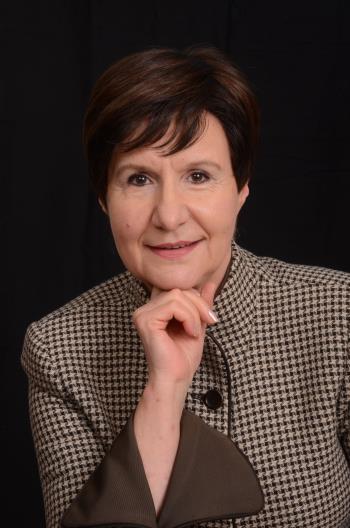
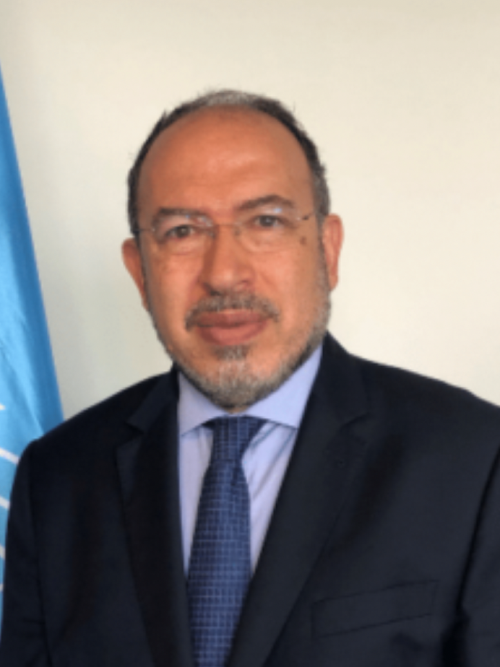
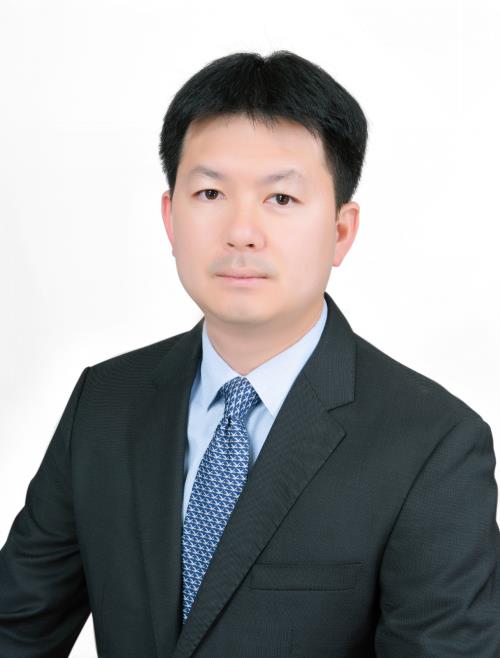
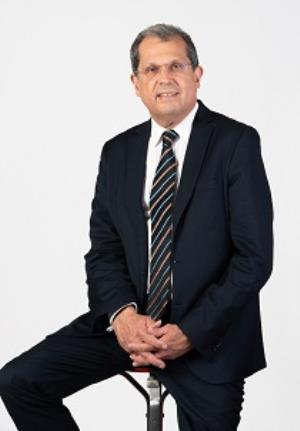
He has served as Chairman of the European Committee of Central Balance Sheet Data Offices (2014 - 2016) and as Chairman of the European Committee on Monetary, Financial and Balance of Payments Statistics (2011 - 2012). He joined Banco de Portugal in 1985 and worked in several departments, becoming the first coordinator of the Balance of Payments Area in the Statistics and Economic Research Department (1993-1998). He was appointed Deputy Head of the Statistics Department in 1998 and Head of this Department in 2004.
At an academic level, he has held teaching positions at ISCTE (1988 - 1999), where he coordinated the subjects of Currency and Banking and Monetary Economics, and at Instituto Superior de Economia of Universidade Técnica de Lisboa (Lisbon Technical University) (1982 - 1986), after completing a degree in Economics there in 1982.
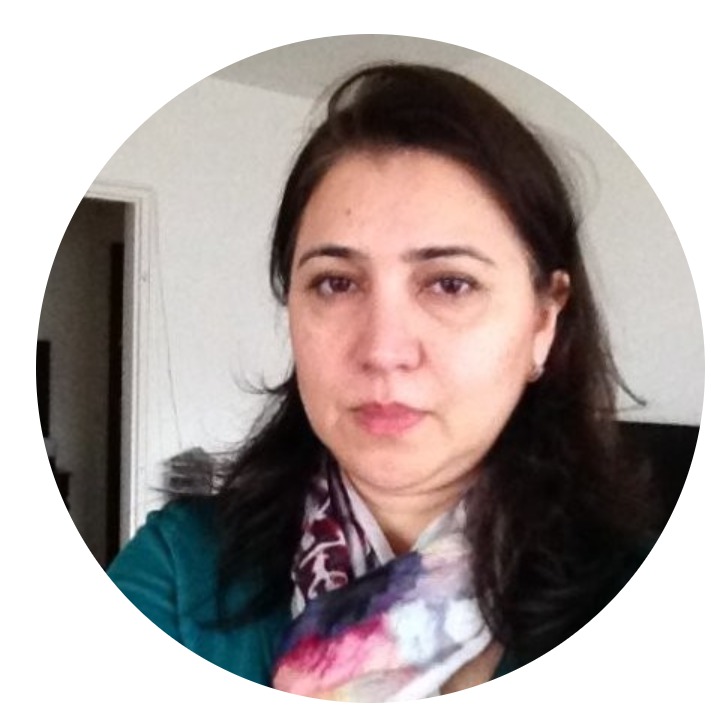
Ms. Aisha Humera Chaudhary is a career Civil Servant from the Secretariat Group. During her 28 years of service, Ms. Aisha Humera Chaudhary has worked on various key positions in Federal Government including Joint Secretary (WTO), Ministry of Commerce, dealing with trade matters with United States, European Union, Central Asia Regions, Africa and Middle East. Economic Counsellor, Pakistan Mission to the WTO, Geneva. She played an instrumental role in the implementation of E-Commerce Policy of Pakistan and successfully negotiated Pakistani sellers access to Amazon market place. She joined the Ministry of Information Technology and Telecommunication on 18th April 2022 as Additional Secretary.
Ms. Aisha Humera Chaudhary holds degrees of Executive Masters International Negotiation & Policy Making from Graduate Institute Geneva Executive Education, Mastering Trade Policy from Harvard University, USA and M.Sc – Development Management from London School of Economics, UK.
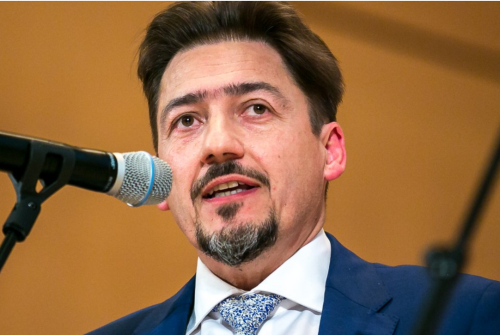
HENRI ELI MONCEAU is the Director of the Economic and Digital Francophonie (DFEN) of International Organisation of Francophonie (OIF) since December 2019. He is specialist in issues of creativity, innovation and digital governance.
Within La Francophonie, he worked as Programmatic and Scientific Coordinator of the second World Forum of the French Language (Liège, 2015) as well as a member of the steering committee of the Francophone Innovation Network (FINNOV). He was also the sherpa for the Francophonie of the Minister of Higher Education of the Wallonia-Brussels Federation (Meetings of French-speaking Ministers of Higher Education in Paris (2015) and Bamako (2016) – IDNeuf). From May 2017, until January 31, 2020, he has assumed the position of Ambassador and Permanent Representative of OIF to the United Nations in Geneva and Vienna.
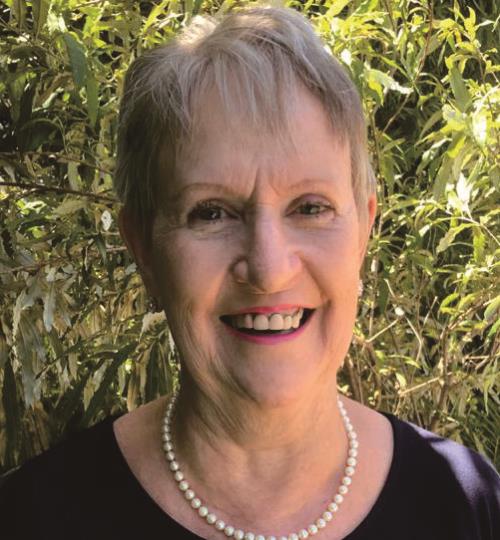
Moira is a Vice President of IFIP (International Federation for Information Processing), and Chair of IFIP IP3. She was awarded the IFIP Silver Core in 2016 for service. She believes that ethical behaviour and leadership are keystones of any profession and works to develop understanding of ethics and the value of the IFIP Code of Ethics.
Moira is an accomplished speaker and has presented at conferences around the world. Notably, she has attended and presented at the WSIS Forum since 2012.
Moira is an independent consultant. Her current work is focused on instructional design and online course development, and she has worked with Subject Matter Experts on diverse topics, including corporate governance. She is also involved with an organisation which focuses on ESG matters, developing resources to help anyone understand ESG and report successfully on their organisation’s achievements n addressing ESG.
Moira is a Professional Member and Fellow of IITPSA (Institute of IT Professionals South Africa), She received the IITPSA Distinguished Service in ICT Award in 2009. She is also a member of ACM and IODSA.
Moira serves on the Council for the National Museum in Bloemfontein, South Africa.
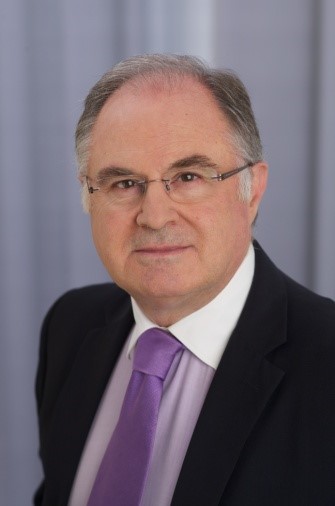
Luis Neves is CEO of the Global Enabling Sustainability Initiative (GeSI) since 2017. Prior to that, from 2008-2017, Luis held the position of GeSI Chairman. Under Luis' leadership, GeSI has become a globally recognized “thought industry leader” organisation in the field of ICT- sustainability with strong focus on the enabling role and positive contribution of digital technologies to climate protection.
Prior to GeSI, Luis worked at Deutsche Telekom for over 15 years holding positions such as Head of Sustainable Development and Environment, VP of Corporate Responsibility and Chief Sustainability and Climate Protection Officer. Luis has also held positions and played relevant roles at European and international levels in organisations, such as the UN Global Compact Lead Group, Econsense -the German Sustainability Association, World Resources Forum Association and UNFCCC Momentum for Change Initiative.
Luis was born in Portugal and obtained a degree in History from the University of Lisbon.
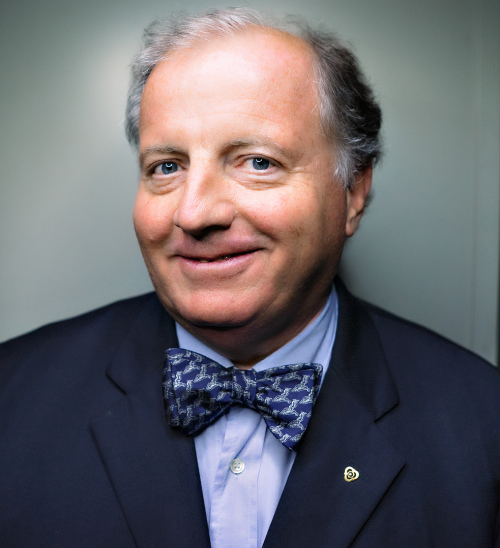
Alfredo M. Ronchi - professor at Politecnico di Milano (Engineering Faculty), Expert/advisor in e-Services, Head of the JRC S2D2 (Safety, Security, Defence, Disaster Recovery and Management), General Secretary of the EC-MEDICI Framework of Cooperation, delegate at UNESCO IFAP and active member of the WSIS since the establishment (2003-/).
Mr Ronchi is member of the following Boards of Directors: Global Forum, World Summit Award, European Education New Society Association (ENSA), Fondazione Italiana Nuove Comunicazioni. Member of the Keio University NoE. Member of the Advisory Board of the School of Law under the aegis of GD Goenka University (New Delhi, India).
He cooperated as organizer or programme chair in W3C, ACM, IEEE, ITU-WSIS conferences; since more than thirty-five years he organizes and manages international conferences and workshops.
Author/contributor of more than 400 papers and various books on: e-Culture, e-Government, e-Safety & Security, and e-Services.
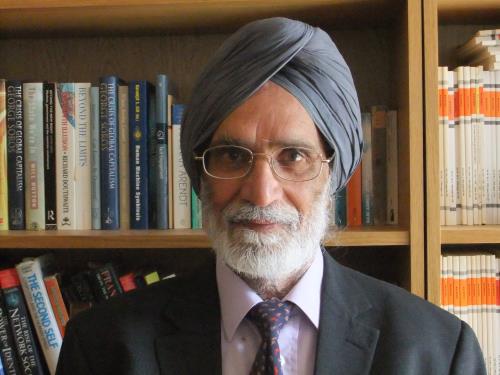
Karamjit S Gill is Professor Emeritus, University of Brighton (UK), Founding Editor of AI&Society Journal (Springer), Visiting Professor at the universities of Wales (UK), Urbino (Italy), Waterford Institute of Technology (Ireland), Beijing Academy of Soft Technology (China), and Symbiotic Network-IIT Mumbai, Delhi University, Arizona State University and UCLA (USA), Universities at Rio de Janeiro (Brazil), Cybernetics Network, Santiago (Chile) and ATA Lima (Peru). Karamjit is the Founding Chair of the International INSYTE-CRL laboratory at Waterford Institute of Technology, Republic of Ireland, and is a member of the Advisory Panel of the Artificial Intelligence for Societal Good Challenge of Science Foundation Ireland (SFI). Over the years he has directed cross-cultural research networks, including EU-India cross-cultural innovation network (EU); Europe-Japan network on human-centred systems; European postgraduate and doctoral research network in human centred systems (EU), Knowledge, culture and artificial intelligence network (EU); New Technology and Adult Literacy (EU); Computer Aided Animated Arts Theatre (CAAAT) Project and the Europe-Japan human centred systems (NTT Data, Japan-1990s); Culture, Language and Artificial Intelligence (COST-EC/Sweden).
He has been the founding Series Editor of the Human Centred Systems Society Book Series (Springer) He is also actively involved in the Community-University Partnership in social mentoring encompassing art, music and craft therapeutic environment and co-production. At Cambridge, he is involved with the Interdisciplinary Performance Research Network, AI Community, and Cambridge Community
-
 C1. The role of governments and all stakeholders in the promotion of ICTs for development
C1. The role of governments and all stakeholders in the promotion of ICTs for development
-
 C2. Information and communication infrastructure
C2. Information and communication infrastructure
-
 C3. Access to information and knowledge
C3. Access to information and knowledge
-
 C4. Capacity building
C4. Capacity building
-
 C5. Building confidence and security in use of ICTs
C5. Building confidence and security in use of ICTs
-
 C6. Enabling environment
C6. Enabling environment
-
 C7. ICT applications: benefits in all aspects of life — E-government
C7. ICT applications: benefits in all aspects of life — E-government
-
 C7. ICT applications: benefits in all aspects of life — E-business
C7. ICT applications: benefits in all aspects of life — E-business
-
 C7. ICT applications: benefits in all aspects of life — E-learning
C7. ICT applications: benefits in all aspects of life — E-learning
-
 C7. ICT applications: benefits in all aspects of life — E-health
C7. ICT applications: benefits in all aspects of life — E-health
-
 C7. ICT applications: benefits in all aspects of life — E-employment
C7. ICT applications: benefits in all aspects of life — E-employment
-
 C7. ICT applications: benefits in all aspects of life — E-environment
C7. ICT applications: benefits in all aspects of life — E-environment
-
 C7. ICT applications: benefits in all aspects of life — E-agriculture
C7. ICT applications: benefits in all aspects of life — E-agriculture
-
 C7. ICT applications: benefits in all aspects of life — E-science
C7. ICT applications: benefits in all aspects of life — E-science
-
 C8. Cultural diversity and identity, linguistic diversity and local content
C8. Cultural diversity and identity, linguistic diversity and local content
-
 C9. Media
C9. Media
-
 C10. Ethical dimensions of the Information Society
C10. Ethical dimensions of the Information Society
-
 C11. International and regional cooperation
C11. International and regional cooperation
-
 Goal 1: End poverty in all its forms everywhere
Goal 1: End poverty in all its forms everywhere
-
 Goal 2: End hunger, achieve food security and improved nutrition and promote sustainable agriculture
Goal 2: End hunger, achieve food security and improved nutrition and promote sustainable agriculture
-
 Goal 3: Ensure healthy lives and promote well-being for all
Goal 3: Ensure healthy lives and promote well-being for all
-
 Goal 4: Ensure inclusive and equitable quality education and promote lifelong learning opportunities for all
Goal 4: Ensure inclusive and equitable quality education and promote lifelong learning opportunities for all
-
 Goal 5: Achieve gender equality and empower all women and girls
Goal 5: Achieve gender equality and empower all women and girls
-
 Goal 6: Ensure access to water and sanitation for all
Goal 6: Ensure access to water and sanitation for all
-
 Goal 7: Ensure access to affordable, reliable, sustainable and modern energy for all
Goal 7: Ensure access to affordable, reliable, sustainable and modern energy for all
-
 Goal 8: Promote inclusive and sustainable economic growth, employment and decent work for all
Goal 8: Promote inclusive and sustainable economic growth, employment and decent work for all
-
 Goal 9: Build resilient infrastructure, promote sustainable industrialization and foster innovation
Goal 9: Build resilient infrastructure, promote sustainable industrialization and foster innovation
-
 Goal 10: Reduce inequality within and among countries
Goal 10: Reduce inequality within and among countries
-
 Goal 11: Make cities inclusive, safe, resilient and sustainable
Goal 11: Make cities inclusive, safe, resilient and sustainable
-
 Goal 12: Ensure sustainable consumption and production patterns
Goal 12: Ensure sustainable consumption and production patterns
-
 Goal 13: Take urgent action to combat climate change and its impacts
Goal 13: Take urgent action to combat climate change and its impacts
-
 Goal 14: Conserve and sustainably use the oceans, seas and marine resources
Goal 14: Conserve and sustainably use the oceans, seas and marine resources
-
 Goal 15: Sustainably manage forests, combat desertification, halt and reverse land degradation, halt biodiversity loss
Goal 15: Sustainably manage forests, combat desertification, halt and reverse land degradation, halt biodiversity loss
-
 Goal 16: Promote just, peaceful and inclusive societies
Goal 16: Promote just, peaceful and inclusive societies
-
 Goal 17: Revitalize the global partnership for sustainable development
Goal 17: Revitalize the global partnership for sustainable development